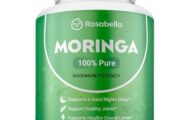Beaches at Lake Nokomis, which is in Minneapolis, have been closed after three children who swam there around the same time have contracted E. coli infections, according to the Minnesota Department of Health. The bacteria is Shiga toxin-producing E. coli. Officials with the Minneapolis Parks and Recreation Board closed the beaches immediately after they were notified by MDH.

The children got sick between August 2 and August 5, 2019, after swimming at Lake Nokomis between July 26 and August 2, 2019. None of the children have been hospitalized.
Minneapolis Parks and Recreation Board Superintendent Al Bangoura said in a statement, “This is the first report of people getting ill from swimming in Minneapolis lakes we have had in more than two decades. We take this news very seriously and are working closely with the Minnesota Department of Health as they conduct their investigation.”
According to public health officials, it’s possible that there are other patients, who either have not been exhibiting symptoms of the illness, or haven’t seen a doctor. Trisha Robinson, waterborne disease supervisor at the Minnesota Department of Health said in a statement, “This strain of E. coli can lead to serious illness. We encourage anyone who swam recently at Lake Nokomis and has symptoms of E. coli to contact their health care provider.”
Park staff is asking swim lesson students and organizers of lake events that have been held since late July to contact the MDH if they have been sick.
Symptoms of Shiga toxin-producing E. coli bacterial infection include severe and very painful stomach cramps, a mild fever, vomiting, and diarrhea that is bloody and watery. People can get sick one to eight days after exposure, but the typical incubation period is two to five days. Most of these patients do see a doctor because symptoms are so scary and debilitating.
Some patients, especially children under the age of 5, can develop hemolytic uremic syndrome (HUS) as a complication of this infection. HUS is a type of kidney failure. Symptoms include little urine output, lethargy, pale skin, easy bruising, and bleeding from the nose and mouth.



